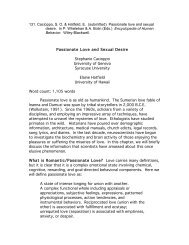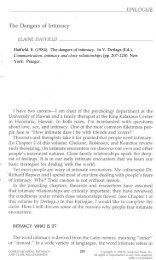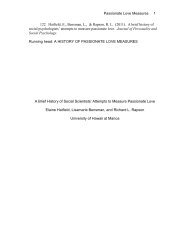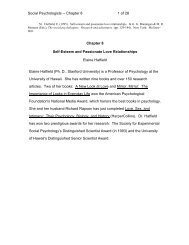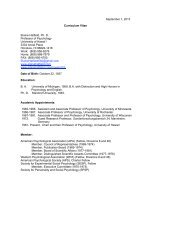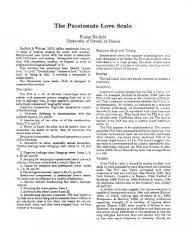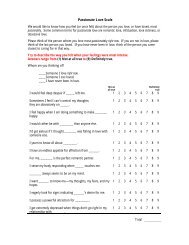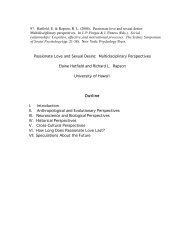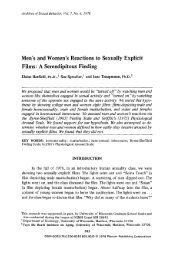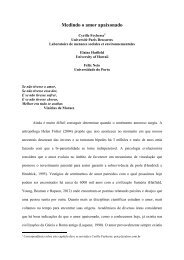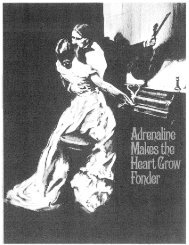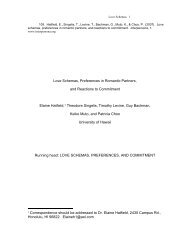Passionate Love and Sexual Desire - Elaine Hatfield
Passionate Love and Sexual Desire - Elaine Hatfield
Passionate Love and Sexual Desire - Elaine Hatfield
Create successful ePaper yourself
Turn your PDF publications into a flip-book with our unique Google optimized e-Paper software.
36extreme jealousy) <strong>and</strong> the Toda tribe of India (known for their startling lack of jealousy).The Ammassalik Eskimo family had to be completely self-sufficient (Mirsky, 1937).Each couple had to produce everything that they needed to survive—shelter, clothing,food, <strong>and</strong> utensils. Loners rarely survived the long, harsh Arctic winters. It is notsurprising that to discover that the Ammassalik were eager, if not desperate, to find acompetent mate. No wonder that those who did had problems with jealousy. Apassionate rival was literally a threat to survival.The Todas of India, on the other h<strong>and</strong>, had a clan economy (Rivers, 1906).Marriage was a luxury, not a necessity. (The most common form of marriage wasfraternal poly<strong>and</strong>ry: When a woman married, she became the wife of all her husb<strong>and</strong>'sbrothers.) Not surprisingly, people did not distinguish much between their own children<strong>and</strong> those of other tribesmen. (Of course, men had no way of knowing who was thefather of “their” children). Companions for friendship <strong>and</strong> for sex were easy to find.The clan worked together on most tasks <strong>and</strong> shared everything. The idea of “private”property did not really exist. Not surprisingly, in this society, jealousy was rare.Hupka <strong>and</strong> Ryan argued that there was a simple explanation for such findings. Inany culture, the more important marriage <strong>and</strong> private property are, the more jealous ofpotential romantic rivals will be the marital partners. To test this notion, the authorsselected 150 tribal societies from those described in The Human Relations Area Files.The scientists then classified societies’ political <strong>and</strong> economic customs: How importantwas it to be married? (Was it, for example, necessary for survival?) How easy was it tofind sex outside of marriage? How important was private property? (Was everything



